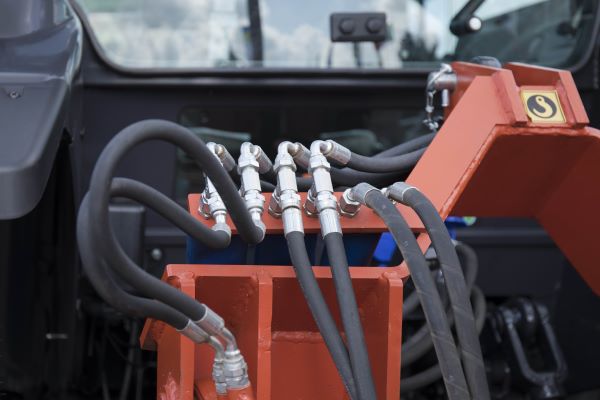Element of Engine System for tractor
Universal tractor fluids offer farmers one multipurpose lubricant solution for almost every requirement. Callum Ford, National Marketing Manager for Lubrication Engineers (LE) South Africa, explains that universal tractor fluids can be used for gears, pumps and bearings. It can also be used across all major tractor brands and as a heat transfer medium for wet brakes and clutches.
“LE’S 7500 Monolec Power Fluid is an example of a universal tractor fluid – a universal type gear/hydraulic, hydraulic/transmission fluid for agricultural and construction tractor equipment,” he says. “While petroleum lubricating oils are excellent in many applications, their performance is enhanced when selected chemical compounds are added. That’s where our proprietary additives come in.”
When choosing a universal tractor fluid, it’s important to consider things like antirust and corrosion protection properties and the inclusion of an antifoam agent to guard against foaming, which reduces power and heat transfer.
Ford explains that LE has designed 7500 Monolec Power Fluid for oxidation stability (to reduce thickening, gumming and “varnish” formation), as well as reducing wear on bearings, cams, pumps, and gearing. “Monolec provides the proper coefficient of friction where needed in wet brakes, wet clutches and hydrostatic and power-shift transmissions,” he says. “It has a high viscosity index and high temperature stability to prevent thinning out and vaporisation at high temperatures. But its low temperature viscosity keeps the oil fluid and flowable at low temperatures.”
A universal tractor fluid should also be compatible with seals to prevent chemical damage to them and filterability will help maintain the service life of the filter and oil. Water tolerance allows the fluid to perform properly in the tractor even when small amounts of water are present.
“Choosing a quality universal tractor fluid can help to protect your investment in your equipment by making your tractor last longer, keeping it running as it was designed to, avoiding costly breakdowns and reducing costs of expensive repairs and replacement parts,” Ford says. “Plus, if you have more than one tractor, using a universal tractor fluid means you don’t have to worry about which hydraulic/transmission fluid to use for what tractor. There is also less risk of misapplication and contamination when using this one hydraulic/transmission fluid from one container.”








